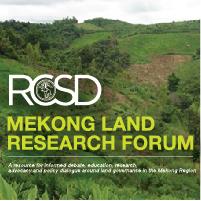Resource information
In light of the urgency of both forest conservation and the recognition of indigenous communities’ rights to land and resources, along with the documented potential for creating conservation synergies through recognition of community rights, this study tries to look at the approaches to forest conservation taken in Myanmar so far, and to take stock of their achievements and impact with respect to both forest conservation and the rights and wellbeing of communities. By contributing to a better understanding of the strengths and weaknesses, potential and limitations of the approaches taken so far, this study hopes to contribute to finding new and more effective ways of conserving Myanmar's forests and respecting and protecting the rights of its indigenous communities. The conclusions drawn and recommendations made based on the findings of this study are particularly aimed at providing inputs to the current drafting of a REDD+ Strategy for Myanmar.


